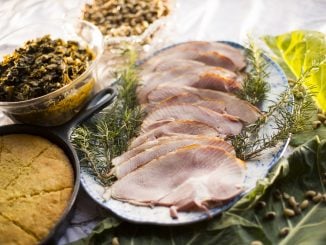RALEIGH — Between food purchase programs and small business loans, agricultural businesses will be getting additional help to navigate and survive the impact of COVID-19.
Earlier this month, U.S. Secretary of Agriculture Sonny Perdue detailed a plan for $470 million in Section 32 food purchases to occur in the third quarter of fiscal year 2020. These purchases will be in addition to any previously announced, allowing the U.S. Department of Agriculture (USDA) to purchase surplus food for distribution to communities nationwide.
“President Trump has authorized USDA to support our farmers affected by this national emergency and this action to purchase food and deliver to those in need further demonstrates his unwavering support for the American people during these unprecedented times,” said Secretary Perdue in a statement.
Under the food purchase plan, Agricultural Marketing Service (AMS) will buy fruits, vegetables, meat, dairy and seafood products. The type and quantity of the food purchases will be determined by industry requests, market analysis and food bank needs. Solicitations will be sent out by AMS in June with deliveries expected to start in July.
“America’s farmers and ranchers have experienced a dislocated supply chain caused by the Coronavirus. USDA is in the unique position to purchase these foods and deliver them to the hungry Americans who need it most,” said Perdue.
In addition to Section 32 purchases, through other available funds the USDA plans to purchase $4.89 billion of only American-grown and produced agricultural products for the remainder of the fiscal year. Farmers to Families Food Box Program will receive $3 billion, another $850 million will go to the Emergency Food Assistance Program (TEFAP) and the Support Program for Farmers will get $573.6 million.
In addition to food purchases, more funding is also headed towards the agribusiness sector.
The U.S. Small Business Administration announced last week that agricultural businesses will now be eligible for the agency’s Economic Injury Disaster Loan (EIDL) and EIDL Advance programs.
“These low-interest, long-term loans will help keep agricultural businesses viable while bringing stability to the nation’s vitally important food supply chains,” said U.S. Small Business Administration Administrator Jovita Carranza.
The EIDL portal has been reopened as a result of funding authorized by Congress through the Paycheck Protection Program (PPP) and Healthcare Enhancement Act signed into law by President Trump.
Agricultural businesses with 500 or fewer employees are eligible from such businesses as the “legal production of food and fiber, ranching, and raising of livestock, aquaculture, and all other farming and agricultural related industries (as defined by section 18(b) of the Small Business Act (15 U.S.C. 647(b)).”
New EIDL applications will be accepted by the Small Business Administration on a limited basis. According to the agency, any agricultural businesses that submitted an EIDL loan application prior to the legislative change will not have to re-apply. All other EIDL loan applications submitted before the portal stopped accepting new applications on April 15 will be processed on a first-in, first-out basis.



